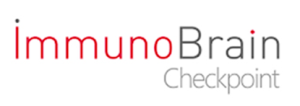
Holger Fröhlich

Jean Georges
Alzheimer Europe (AE)
The aim of this team is to coordinate and manage the project (writing of reports for the funding agencies, budget administration, regular meetings of team leads), deal with contracts and communicate as well as disseminate information.
Dissemination to scientific audiences and internal project communications will be managed by the Fraunhofer Institute for Algorithms and Scientific Computing, while Alzheimer Europe is responsible for external dissemination to non-scientific audiences and other key stakeholders, including policymakers, people living with Alzheimer’s disease and the general public.

Raquel Sanchez-Valle
Fundació Clínic per a la Recerca Biomèdica (FCRB)

Stefan Kirsch
Fraunhofer Institute for Toxicology and Experimental Medicine (ITEM-R)
 Eti Yoles
Eti Yoles
ImmunoBrain Checkpoint LTD (IBC)
 Istvan Nagy
Istvan Nagy
SeqOmics Biotechnology Ltd. (SO)
The aim of this team is to organise ethics approval, acquire clinical, cognitive, CSF, sleep data and biosamples as well as to perform immune profiling and single-cell sequencing.
Blood samples will be obtained from

Holger Fröhlich
Fraunhofer Institute for Algorithms and Scientific Computing (SCAI)
 Eti Yoles
Eti Yoles
ImmunoBrain Checkpoint LTD (IBC)

Raquel Sanchez-Valle
Fundació Clínic per a la Recerca Biomèdica (FCRB)
Over past years, SCAI has built up a large repository of published AD studies, including AIBL, ADNI, NACC, EPAD and other AD cohort data sets, (see Birkenbihl et al. 2020 for an overview). The data can thus directly be used for modelling in WP4 while being combined with additional variables measured for some patients. Noteworthy, all cohorts have already been included into a web-based data catalogue, (see https://adata.scai.fraunhofer.de/). All newly collected data from AIBL as well as Fundació Clínic per a la Recerca Biomèdica will be harmonized, and meta-data integrated into the existing web-based data catalogue. The data catalogue will be extended to include immune signatures (also RNA/TCRseq data analysis results), measures of sleep disturbance and digital endpoints as a separate data modality towards the end of the project.

Uri Nevo
Tel Aviv University (TAU)

Holger Fröhlich
Fraunhofer Institute for Algorithms and Scientific Computing (SCAI)
TAU will apply Agent-Based-Modelling (ABM) of Natural Killer (NK) and effector memory T (TM) cells immune response, in the context of Alzheimer’s disease (AD), using mechanistic data generated in WP2. This work will result into a set of features describing the dynamics of immune response.
SCAI will be responsible for the statistical analysis of the project’s data as well as AI based models. We will analyse differences between diagnostic patients groups and apply our previously developed Variational Autoencoder Modular Bayesian Networks (VAMBN) method (Gootjes-Dreesbach et al. 2020) to disentangle the relationship between immune signatures and symptoms of AD.

Jean Georges
Alzheimer Europe (AE)
The public involvement activities in WP5 will ensure that key aspects of ADIS are informed by the meaningful contribution of people with dementia and Mild Cognitive Impairment (MCI) due to Alzheimer’s disease (AD). Alzheimer Europe will work in close collaboration with the different Work Packages to identify aspects in which the views and perspectives of people with dementia and people with MCI due to AD are needed. Some examples of topics to be addressed include opinions on early prediction of AD using AI algorithms, ethical and social implications in relation to earlier AD diagnosis; and appropriate language for communicating an early prediction of AD. These activities will be led by Alzheimer Europe in close collaboration with project partners.